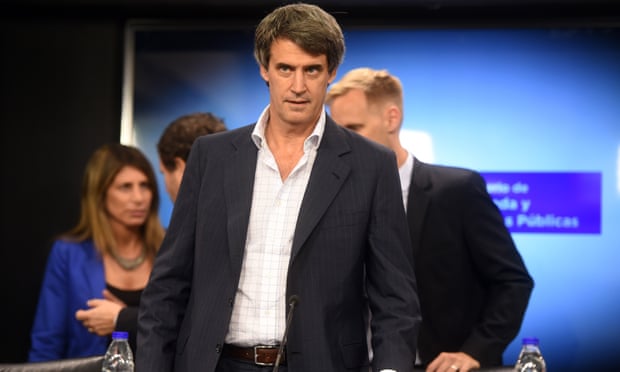President Mauricio Macri hopes the move will boost exports and spark economic growth.
Farmers in the country have been waiting for the currency to fall before selling stockpiles of soybeans.
The official exchange rate of 10 pesos to the dollar is not matched by a much stronger black market rate.
Analysts expect the official rate to weaken to between 13.5 and 15.00 per dollar, in line with the black market rate.
The Argentine finance minister, Alfonso Prat-Gay, said he accepted the rate would weaken to "close to" 14.2 to the dollar.
Mr
Prat-Gay also said the country was negotiating a credit line with
international banks to build a credit line of more than $5bn to
replenish the country's international reserves.
In a press conference, Mr Prat-Gay said "The old system had killed
the goose that laid the golden egg" by restricting the growth of the
economy.
He outlined that exchange controls would end for all businesses who would be allowed to buy as many dollars as they needed.
But
he said, for the time being, ordinary Argentines would still face
restrictions on the amount of dollars they could buy a month.
In
response to concerns that there could be a steep devaluation, Mr
Prat-Gay said the central bank had been given the right to intervene if
the exchange rate fell to quickly.
The country's previous leader, Cristina Fernandez, used central bank reserves to prop up the peso.
But Mr Macri, who was elected last month and inaugurated on Thursday, had vowed to change the policy.
Argentina
has been plagued by financial volatility in recent decades with
inflation running at around 25% according to private estimates.











No comments:
Post a Comment